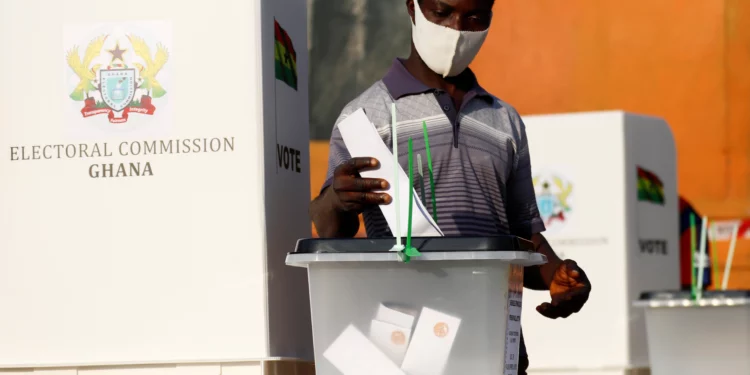Current Economic Challenges, Citizens’ Welfare to Heavily Influence Voter Decisions in December Elections – Deloitte
The election outcome for the heavily dependent cocoa and gold economy, the article noted, will weigh on the country’s policy direction, as well as investor and market sentiments.

A Deloitte article by Damilola Akinbami has noted that the current state of the Ghanaian economy and the welfare of citizens will factor heavily into how voters evaluate campaign promises and determine the next leader of the nation in the upcoming December 2024 elections.
The election outcome for the heavily dependent cocoa and gold economy, the article noted, will weigh on the country’s policy direction, as well as investor and market sentiments.
- Advertisement -
Both the New Patriotic Party (NPP) and the National Democratic Congress (NDC) have launched their 2024 manifestos with the country’s two leading political parties promising rapid GDP growth rate, economic development, job creation, among others.
- Advertisement -
Ghana’s macroeconomic environment, the article notes, has remained challenging due to several factors with the prominent ones being high inflation, high interest rate environment, currency weakness, and elevated debt levels. Asserting that, these challenges are likely to persist for the rest of 2024, driven by ongoing market reforms, weak consumer demand, and low foreign investment.
As a result, consumers will likely face further declines in purchasing power, and businesses are likely to experience higher operating costs with both households and businesses already implementing belt-tightening measures to survive.
Ghana’s economy grew by 4.7% year on year in the first quarter of 2024, driven by rapid 6.8% year-on-year growth in the industrial sector. The agriculture and services sectors grew at a slower pace of 4.1% and 3.3% year on year, respectively.
- Advertisement -
The country is currently recovering from a debt-induced crisis, following the government’s restructuring of its $30 billion debt. Ghana has been able to secure approval for two tranches of IMF disbursements so far this year, bringing cumulative disbursements from the IMF to $1.6 billion since 2023.
On the outlook of the Ghanaian economy, Deloitte notes that the Ghanaian economy is favourable in the short to medium term. However, there are downside risks emanating from the forthcoming general elections in December, high inflation, and elevated interest rates, all of which are weighing on private consumption and investment spending in 2024.
Despite the downside risks, Deloitte anticipates a faster pace of recovery of the Ghanaian economy from 2025 onward, driven by an anticipated decline in consumer prices, which will trigger a further cut in interest rates.
In addition, mining output is estimated to rise, supported by increased output from the recommissioned Bibiani gold mine and production from the Ahafo North gold mine.
Source:norvanreports.com
- Advertisement -



